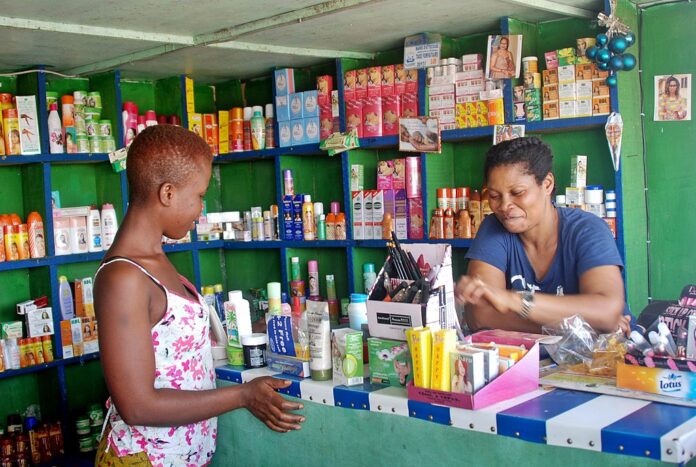Retail sales in South Africa have shown signs of improvement, signalling the first expansion of the year in 2023. According to Statistics South Africa (Stats SA), retail sales surged by 0.9% year-on-year in September, exceeding the anticipated Reuters consensus of a minimal 0.1% year-on-year increase. Nevertheless, upon closer examination of the monthly data, the figures reveal a more nuanced scenario as seasonally adjusted volumes grew by 0.1% month-on-month, a decline from the revised 0.3% observed in August.
Siphamandla Mkhwanazi, a Senior Economist at FNB, conveyed that there had been a 0.8% quarter-on-quarter recovery in sales volumes following a 0.8% downturn in the second quarter of 2023, illustrating how the retail sector contributed to the third-quarter GDP growth. He noted that in contrast, the productive sectors—mining and manufacturing—had hindered growth during that same period. Nevertheless, despite this positive change, Mkhwanazi pointed out that year-to-date volumes persist 1.5% lower than the corresponding period last year, underscoring the ongoing challenging consumer environment in the nation.
The analysis of sales performance across categories underscored a disparity, with only three out of seven sectors exhibiting growth in annual volumes. Among them, clothing and footwear retailers sustained their robust momentum, boasting an impressive 13.5% year-on-year surge in volume, contributing significantly with a 2.0 percentage point increment. Similarly, food and beverages retailers recorded a 2.0% year-on-year growth, adding 0.2 percentage points to the overall figures.
In contrast, household furniture sales witnessed a marginal rise of 0.3%, making a modest contribution to the headline growth. Conversely, general dealers (-1.0% year-on-year, deducting 0.5 percentage points), hardware retailers (-5.5% year-on-year and -0.5 percentage points), other retailers (-2.9% and -0.3 percentage points), and pharmaceutical retailers (-1.2% year-on-year and -0.1 percentage points) faced declines, exacerbating the overall downturn in sales figures.
FNB anticipates stricter lending criteria as the residual impact of prior interest rate increases continues to affect the economy. Combined with a prevailing sense of consumer pessimism, this is expected to curtail any substantial improvement in retail operations. Consequently, FNB foresees restrained growth in household spending for the rest of 2023. This prognosis aligns with Investec’s Lara Hodes’ view, emphasising the probability of tepid household expenditure—an essential element comprising approximately two-thirds of the GDP—with an anticipated growth of 0.8% for the year.
While the recent slight increase in retail sales offers a ray of optimism, the persistent economic challenges signal a rough path ahead for South Africa’s consumer sector.




































